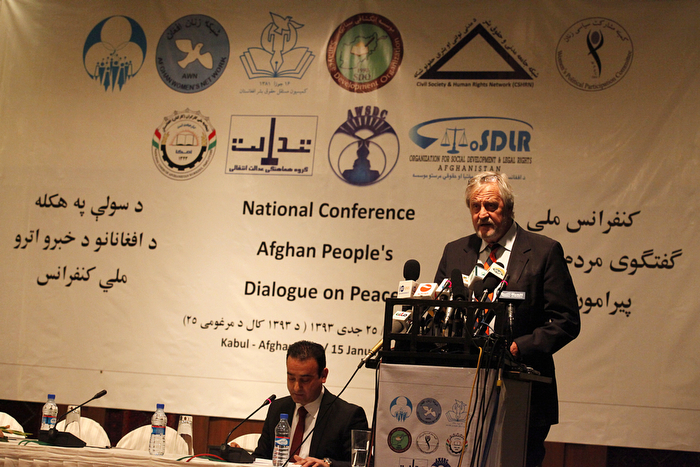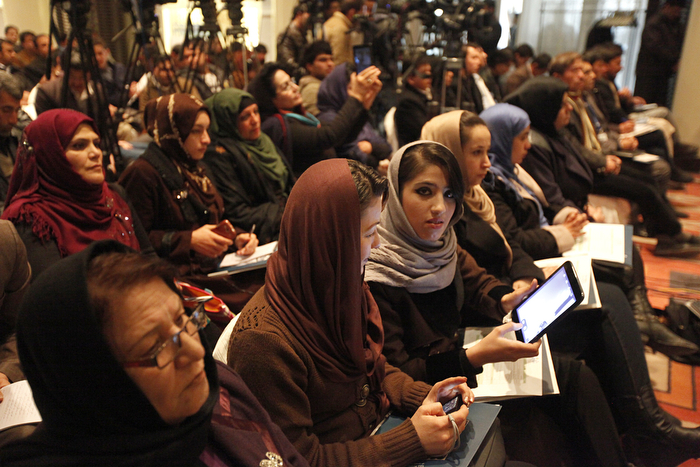KABUL - The top United Nations official in Afghanistan today said that Afghan leaders should incorporate people’s views and proposed solutions into all efforts aimed at stabilizing the country.“My firm conviction is that peace will come to those who clearly demand the conditions to allow its establishment,” said the UN Secretary-General’s Special Representative for Afghanistan, Nicholas Haysom, in his comments at a national conference in the capital, Kabul.
Mr. Haysom, who also heads the UN Assistance Mission in Afghanistan (UNAMA), said shared goals of a secure, sovereign and prosperous Afghanistan can only be accomplished through enduring peace.
The conference was the culmination of more than three years of UNAMA-supported and civil society-led dialogues among Afghan men, women and youth from all walks of life on prospects for peace at the local level across Afghanistan.
The Afghan People’s Dialogue on Peace, undertaken and led by 11 Afghan civil society networks and the Afghan Independent Human Rights Commission (AIHRC), involved consultation with over 6,000 people.
The recommendations from today’s conference are expected to be announced at a news conference on Saturday.
The conference in Kabul, which was also addressed by senior government officials including Second Vice President Mohammad Sarwar Danish, AIHRC head Sima Samar and a senior official with the High Peace Council, provided opportunity to Afghan civil society organizations to hone their advocacy plans to ensure that the voices of the Afghan people are heard by the policymakers at provincial and national levels.
Mr. Haysom noted that one of the most important findings of the three-year process was an understanding that “what peace requires is more than a temporary silence of the guns but the active presence of social justice.”
Afghan people, through the peace dialogue, have stressed the need to disarm and disempower the local militia, to tackle corruption and impunity, to confront the lack of equitable economic and social development, the need to respect human rights and especially women’s rights, to improve education and to empower youth and to restore lands to its proper occupants.
“In peace and reconciliation processes, UNAMA shares the view that human rights cannot be sacrificed and that women must play a strong and active role that peace is both a top-down and bottom up process for peace processes to be durable and effective,” said Mr. Haysom.
In his comments, Mr. Danish said that the Afghan government will fulfill its commitments on peace and will be accountable to the people of Afghanistan. He also promised to “fully consider” the findings of the three-year process in the government’s strategies and plans.








